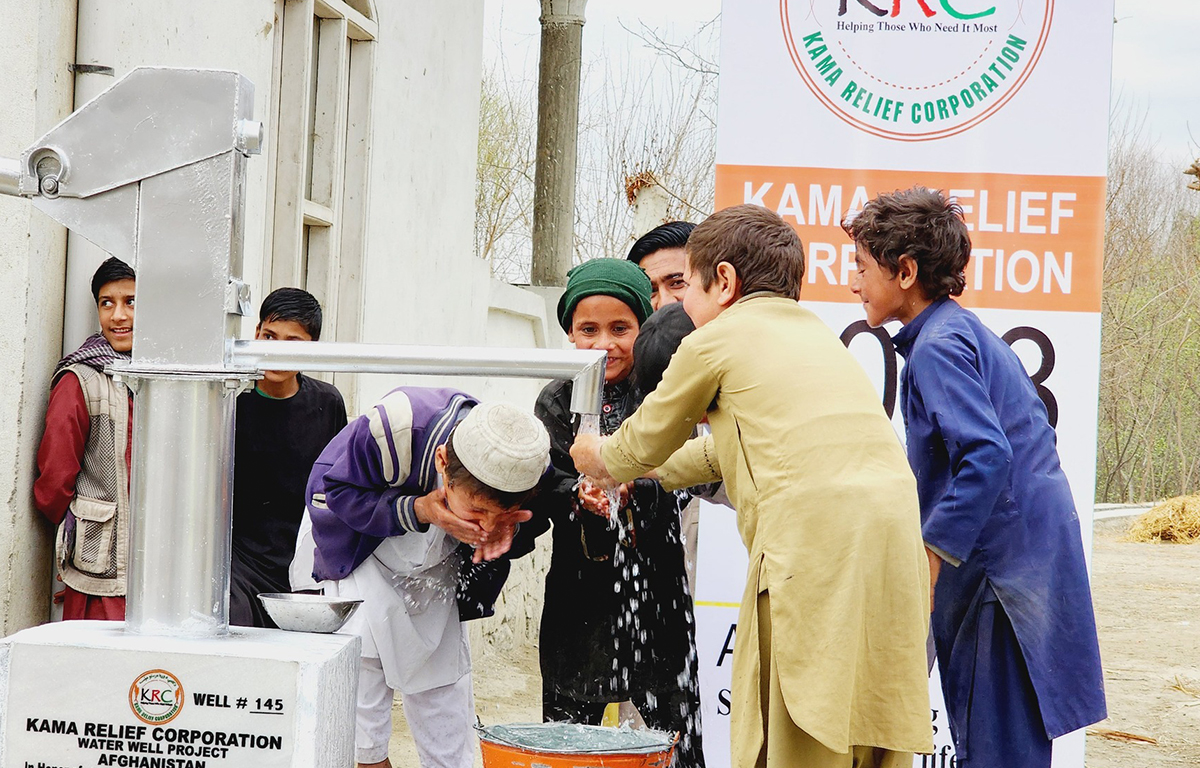Introduction
In a world where access to clean and safe drinking water remains a distant dream for millions, organizations like Kamarelief are stepping up to tackle one of the most critical global challenges – water scarcity. With their commitment to implementing clean water well projects, these organizations are not only meeting immediate needs but also paving the way for long-term benefits that transform the lives of communities they serve.
The Urgency of Water Scarcity
Water scarcity is a pressing issue that affects regions across the globe, from developing nations to developed ones. The scarcity of clean, potable water can lead to a multitude of problems, including health issues, reduced agricultural productivity, economic strain, and even conflict. The United Nations recognizes access to clean water and sanitation as a fundamental human right, underlining the significance of addressing this issue on a global scale.
The Role of Clean Water Well Projects
Organizations like Kamarelief play a vital role in addressing water scarcity by initiating and implementing clean water well projects. These projects involve drilling wells to tap into underground water sources, providing communities with a consistent and reliable supply of clean drinking water. This innovative approach directly combats water scarcity by bringing a sustainable solution to areas where traditional water sources might be contaminated or insufficient.
Immediate Benefits
The immediate benefits of clean water well projects are transformative for the communities they target. Access to clean water enhances overall health and well-being, significantly reducing waterborne diseases that disproportionately affect vulnerable populations, particularly children and the elderly. With a nearby source of safe drinking water, families no longer need to rely on distant and often contaminated sources, which saves them time and effort while improving their quality of life.
Long-Term Advantages
Beyond the immediate relief, clean water well projects have profound long-term advantages. These initiatives empower communities to break free from the cycle of water-related diseases and health issues, allowing children to attend school regularly and adults to engage in productive activities. Moreover, the newfound access to clean water can lead to increased agricultural productivity, fostering economic growth and stability within these communities.
Sustainability and Community Involvement
The success of clean water well projects hinges on sustainability and community involvement. Organizations like Kamarelief not only fund the initial project but also work closely with local communities to ensure that the wells are properly maintained and managed. Community participation not only fosters a sense of ownership but also equips residents with the knowledge and skills needed to manage their water resources effectively.
A Call to Action
The battle against global water scarcity requires collective action, and supporting organizations like Kamarelief is one way to make a tangible impact. By contributing to their efforts, whether through donations, volunteering, or raising awareness, individuals can play a significant role in bringing clean water to those who need it most. Furthermore, advocating for policies that prioritize water resource management and environmental protection is crucial in addressing the root causes of water scarcity.
Conclusion
Clean water well projects spearheaded by organizations like Kamarelief represent a beacon of hope in the struggle against water scarcity. By addressing immediate needs and fostering long-term development, these projects create a ripple effect that extends far beyond access to clean water. With sustained efforts and a shared commitment, we can move closer to a world where every individual has the basic human right to clean and safe drinking water. The journey may be challenging, but the rewards are immeasurable – healthier communities, empowered individuals, and a more sustainable future.
FAQ:
Q1: What is the significance of clean water well projects?
A: Clean water well projects provide communities with access to safe and reliable drinking water, addressing water scarcity and reducing waterborne diseases.
Q2: How do clean water well projects benefit communities in the long term?
A: These projects empower communities by improving health, enhancing agricultural productivity, and fostering economic growth, creating a sustainable and prosperous future.
Q3: How can individuals contribute to clean water well projects?
A: Individuals can support these projects through donations, volunteering, and raising awareness about the importance of clean water access for vulnerable communities.
Q4: What role does community involvement play in the success of these projects?
A: Community participation ensures proper maintenance of wells and equips residents with skills to manage water resources effectively, enhancing the projects’ long-term impact.
Q5: Why is addressing water scarcity crucial on a global scale?
A: Water scarcity leads to health issues, reduced agricultural productivity, economic strain, and conflict. Access to clean water is recognized as a fundamental human right by the United Nations.


Leave A Comment
You must be logged in to post a comment.